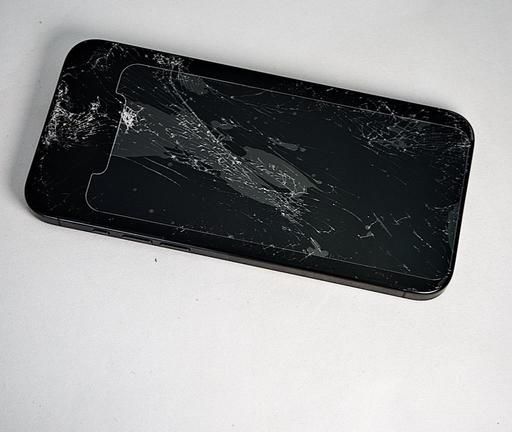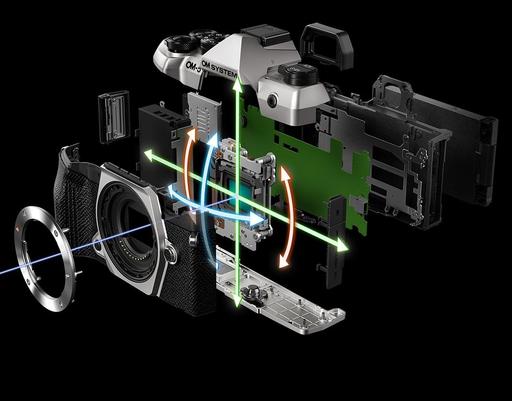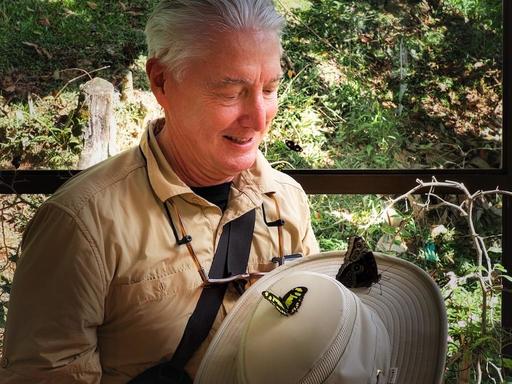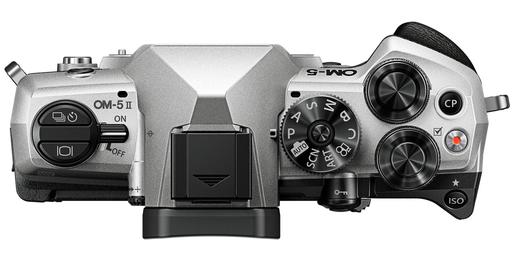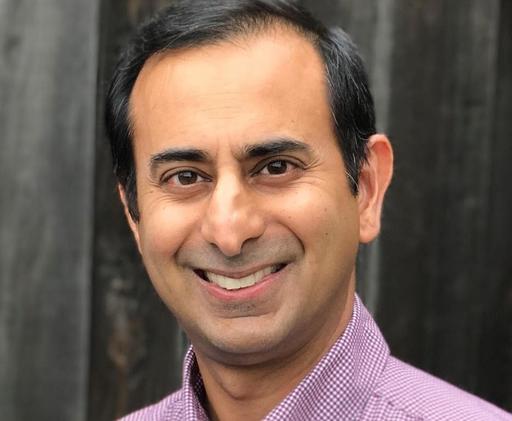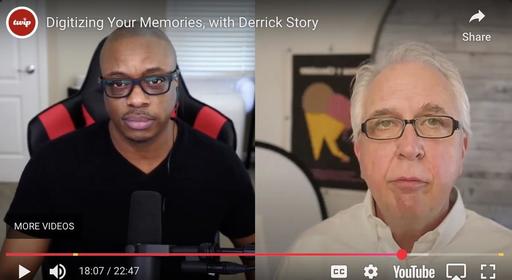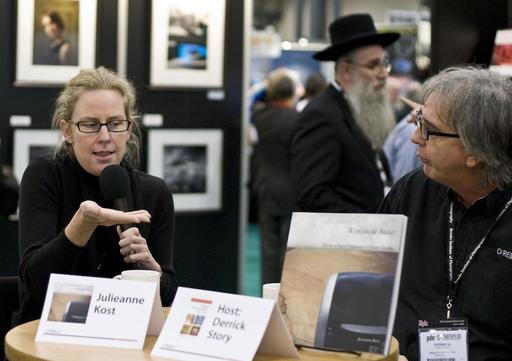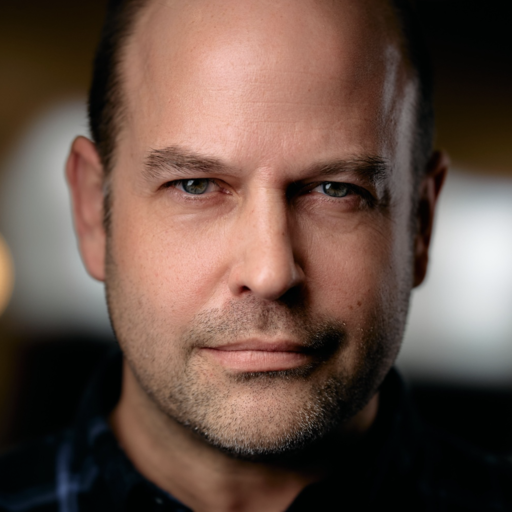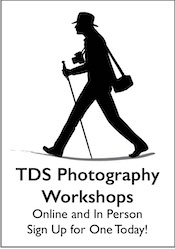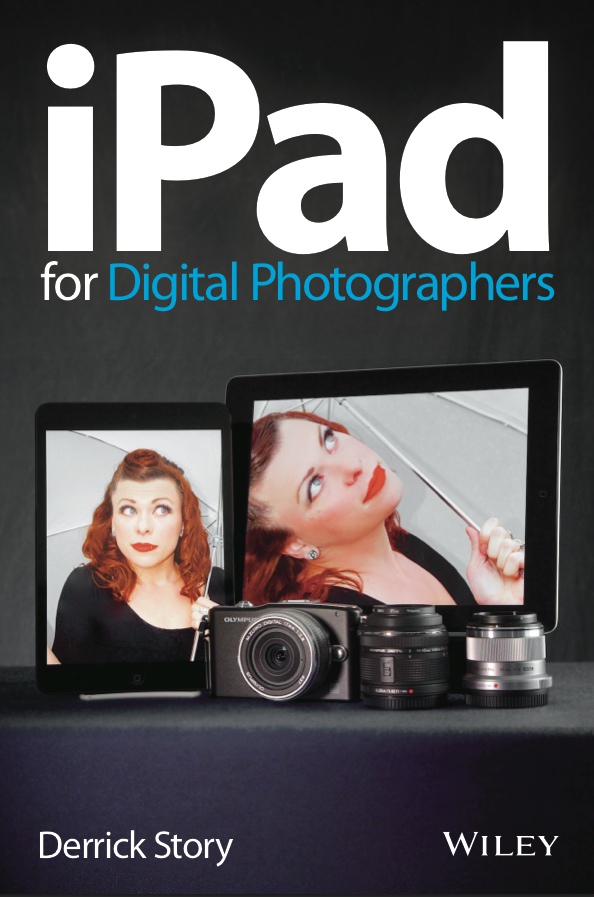This is The Digital Story Podcast 1,001, May 27, 2025. Today's theme is, "Half Digital, Half Analog - The Fujifilm X half Review." I'm Derrick Story.
Opening Monologue
2025 is establishing itself as the year of the creative camera. We started with the Sigma BF, then Fujifilm GFX100RF, and now the Fujifilm X half. Nothing boring in this lot! And whether or not you decide to purchase the new X half, you're bound to appreciate the thought that went in to it. I'll share my highlights in today's TDS Photography Podcast. I hope you enjoy the show.
Digital Photography Podcast 1001
Tune-In Via Your Favorite Podcast App!

Apple Podcasts -- Spotify Podcasts -- Stitcher
Podbean Podcasts -- Podbay FM -- Tune In
Half Digital, Half Analog - The Fujifilm X half Review
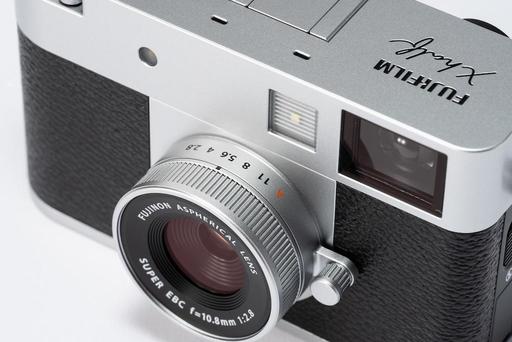
When I first saw the handsome Fujifilm X half compact camera, there was an instant attraction. The clean lines with a distinct Leica vibe, uncluttered by the lack of knobs, dials, and buttons. It's a camera that begs to be touched.
And it's also a device unlike anything I've previously reviewed. In essence, the X half poses as an analog camera with digital underpinnings. With 13 film simulation choices and 26 filters, photographers can create images that tap Fujifilm's long history of color science, then add grain, flare, and even the classic date stamp in the lower right corner.
The X half insists that you create in-camera. There's no RAW option for post-processing manipulation. You cast the spell with its settings, then wait for the magic to appear.
In classic half frame tradition, holding the camera normally means that you're composing a vertical shot. After capture, send the image to your smartphone for all of the usual sharing options.
But unlike your smartphone, beneath that beautiful exterior beats the heart of a 1" sensor, paired with an excellent Fujinon 32mm single focal length lens. The resulting picture quality is far beyond what a half frame film camera could ever produce.
Basic Specifications
There's a lot to unpack here. But first, let's take a look at the basic specs.
- Resolution: 17.74 million pixels
- Exposure comp: -3.0EV~+3.0EV 1/3EV step (Movie '-2.0EV~+2.0EV 1/3EV step)
- Sensor size: 13.3mm x 8.8mm (1 inch) with primary color filter
- LCD monitor: 2.4 inch Touch Screen Color LCD Monitor, Approx. 0.92 million dots
- Image size: 3648 × 4864 in single frame mode, 7296 x 4864 in 2-in-1 mode (more on that later)
- Focusing: TTL contrast AF with single, continuous, or manual options
- Lens: Fujinon single focal length lens(35mm format equivalent : 32mm)
- Video: Full HD(3:2) (1080x1440)/24p at up to 50Mbps
- Aperture: F2.8-F11 1/3EV step in auto aperture modes. 1/2EV step in
Aperture Priority.
- Connectivity: Bluetooth, Wi-Fi, USB-C
- Storage: SD Card (-2GB), SDHC Card (-32GB), SDXC Card (-2TB) or UHS-I
- Metering: TTL 256-zone
- Dimensions: (W x H x D) 105.8mm x 64.3mm x 30.0mm
- Shutter: 15min. to 1/2000sec. (mechanical)
- Weight: Approx. 240g (0.53 lbs) (including battery and card)
- Exposure modes: Program, Aperture Priority, Shutter Priority, and Manual
Side-by-Side Output
One of the things I admire about Fujifilm is their design creativity. One example is the 2-in-1 Mode where photographers can position a couple of vertical images side-by-side to better tell a story. Tap this mode to combine two still images, two videos, or an image and a video. This could be very effective for social postings.
Film Camera Mode
If you really want to embrace the analog camera experience, the X half can accommodate you - probably better than any other device I've tested.
Film Camera Mode lets you digitize the experience of using a classic one-time use film camera. After selecting a film simulation to use and the a roll size of 36, 54, or 72 exposures, you can emulate an analog-like experience, complete with the need to wind the camera's frame advance lever after making each image, replicating the classic analog photography experience.
The LCD won't display captured images or let you compose on it while in Film Camera Mode. You must use the optical viewfinder. Once you've completed a "roll of film," you can process it via the X half smartphone app.
Another nice touch to further enhance this experience is the film roll window on the back panel of the camera that displays an electronic image of the film cartridge that you're using. I always liked that feature on my analog cameras, and it's fun that Fuji includes it on the X half as well.
Navigating Camera Controls
One of the first things that jumped out at when first looking at the X half was the lack of buttons and dials. The top panel features the On switch, exposure compensation dial, advance lever, and a shutter button (with threaded socket for a traditional cable release).
There's an aperture ring on the lens barrel. A flash on/off switch is positioned on the left side. And the back panel has a switch to toggle between stills and movies, plus a play button. That's it!
So how do you move between exposure modes (PASM), select focusing options, and all the other settings that are needed? Get ready to swipe.
The X half features a touch-screen interface that you navigate using the camera's two rear LCD monitors. Via touch operations you can change image settings and film simulations. Swipe up, down and all around to access the controls you need.
Printing Pictures
It makes perfect sense that photographers interested in an analog experience would be inclined to make prints. Fujifilm does a decent job of accommodating small format output.
The X half will talk directly via Bluetooth/WiFi to select instax Link series printers that include the mini Link2, mini Link3, SQUARE Link, and Link Wide. On one hand, this is great news and we have a variety of printers to choose from. On the other, I have a FujiFilm mini EVO camera that serves as an instax printer for my iPhone pictures, and it isn't compatible. So I would need to invest in an additional instax printer for direct output from the X half.
Also noting that the X half has a beautiful 1-inch back-illuminated 17.74 mp sensor paired with a 10.8mm f/2.8 prime lens (equivalent 35mm focal length of 32mm) - that's produces plenty of quality for bigger output from your inkjet printer. Fujifilm did not cut corners on the imaging pipeline with this camera.
One fun side note while discussing specs: the X half produces a similar angle of view as the one-time-use QuickSnap film camera.
Pros and Cons
I think for the target market, the Fujifilm X half has a lot of positives. Included are:
- Very compact and light weighing only about a half pound.
- Excellent imaging pipeline for a compact camera.
- A cornucopia of creative tools for analog-loving photographers.
- Just enough video capability for content creators (Full HD/24p).
- Superb battery life (880 shots).
- LED flash doubles as a movie light.
- Bluetooth, WiFi, USB-C.
- Threaded socket for cable release.
- Excellent optical viewfinder.
- Integrated "film advance" lever.
- Three attractive design options.
However, if you're outside the target market, these cons will probably deter you from purchasing the X half:
- No RAW format - Jpeg only.
- Missing film simulations: PRO Neg. Std, PRO Neg. Hi, Eterna Bleach Bypass, Monochrome, and Monochrome Ye/R/G.
- Cold shoe on top plate - no contacts for an external flash, not even a cute petite one.
- Fixed back LCD with lowish resolution (0.92 million dots).
- Does not connect to all FujiFilm instax printers.
- Relies heavily on swipe controls for basic camera settings.
Pricing and Availability
The Fujifilm X half compact camera is expected to be available late June 2025 at a manufacturer's suggested retail price of $849.99 USD and $998.99 CAD.
Bottom Line
Photographers and content creators have been asking for more creative camera design. Fujifilm listened. The X half is a risky, fun, and innovative tool for those who love film photography.
At $849, however, it has to be more than a toy. And thanks to its quality lens, optical viewfinder, and 1" sensor, the X half is capable of delivering outstanding pictures.
Personally, I'm not in the target market. I'm more of an X100 guy. But I am attracted to the X half's handsome looks and creative options. And with a few firmware updates, I could find myself leaning back its way.
Camera Industry News
Iconic Photographer Sebastiao Salgado Has Died - You can read the entire article on petapixel.com.
Ricoh is finally making a GR IV camera, and it's coming in the fall - You can read the entire article on TheVerge.com.
Virtual Camera Club News
Inner Circle Bold. Sign up for the Annual Membership that's only $75.60 a year, you will receive all of the regular Inner Circle benefits, plus a coupon for your choice of a 2026 Online workshop hosted by me.
TDS Photography Workshops! Reserve your spot now. We have an exciting slate of online and in-person events. If you have any questions, use the Nimble Photographer Contact Form. I will get back to you ASAP.
Creative Camera Techniques led by Derrick Story, starting on June 5, 2025.
In addition to the full slate of goodies I have planned for iPhone photographers, Fuji cameras, Nikons, and more, I'm adding creative techniques for the new OM System OM-3. Photographers will be able to pick and choose techniques based on the camera system they shoot with.
Sonoma County Autumn Adventure Workshop, led by Derrick Story, starting on Nov. 4, 2025.
We will be returning to Safari West African Wildlife preserve, and visiting the world famous Coppola Vineyard, home of amazing wines, rolling vineyards, Academy Awards, an authentic Tucker car, and more.
You can reserve your place of each of these events by visiting our Workshops Page.
The Nimble Photographer Newsletter is now publishing every Thursday. Readers will enjoy a variety of content spanning from short photo essays, to commentary on weekly events, to reviews of the latest and coolest photo gear.
Inner Circle Members: A big thanks to those who support our podcast and our efforts! We are having a blast at our new Inner Circle hangout, the private group I've set up at DerrickStoryOnline. We'd love it if you join us. You can become an Inner Circle Member by signing up at our Patreon site. You will automatically be added to the new hangout.
Great Photography Articles on Live View - If you check out our publication and appreciate what you see, be sure to follow us and clap for those authors. You can find us at medium.com/live-view.
If you're interested in writing for Live View, drop me a line at dstory@gmail.com.
The New Donation Kit for Carefree Shipping of Found Film Cameras - If you've discovered a film camera that's no longer being used, our new Donation Kit makes it easy to pack and ship. Just visit the Contact Form on thenimblephotographer.com, click the box next to Donating a Film Camera, and let me know what you have. In your note, be sure to include your shipping address.
Affiliate Links - The links to some products in this podcast contain an affiliate code that credits The Digital Story for any purchases made from B&H Photo and Amazon via that click-through. Depending on the purchase, we may receive some financial compensation.
Red River Paper - And finally, be sure to visit our friends at Red River Paper for all of your inkjet supply needs.
See you next week!
You can share your thoughts at the TDS Facebook page, where I'll post this story for discussion.
